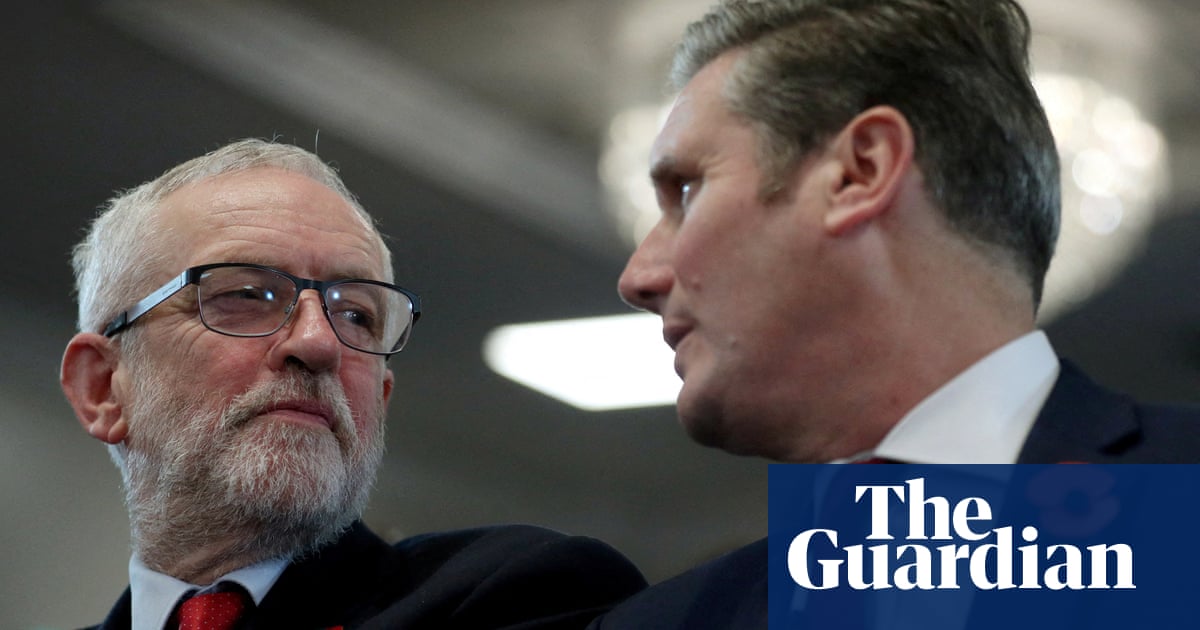
osing, losing, losing. Is that what Labour does best? A brutal 154-page analysis by a panel of Labour heavyweights has just laid out the rugged path ahead if it’s to win next time after four election defeats. To take 124 more seats – after crashing to the party’s worst result since 1935 – needs a gigantic 7.9% swing from voters and non-voters of every class, age, town, city and region. The odds look shocking.
If anyone needed reminders, the BBC’s parliament channel this weekend reprised the dismal election night, exactly 50 years ago, when Harold Wilson was unexpectedly shunted out by Edward Heath in 1970. That was the first election I could vote in, the first I covered as a junior reporter, and it delivered a salutary slap of reality: even when virtually every poll, bookie and commentator expected a Wilson victory, Labour could still snatch a defeat.
I covered Heath’s embarrassing daily pre-election press conferences: he was clumsy, awkward, irritable, and mercilessly mocked by a disrespectful press. His own party thought him a no-hoper. In his hubris, Wilson had proclaimed Labour “the natural party of government”; but, yet again, the deep undertow of English conservatism regressed to the norm. After the result, share prices soared. In the half-century since, Labour has only been in power for 18 years: it seems life on the left is to have hopes dashed.
Never underestimate the rip tides that keep pulling unlikely Tory governments back into power. Yet this time there could hardly be a leader or cabinet more unfit to represent the country, let alone those captured northern towns. This frivolous Etonian follows behind a similar dilettante from the same school: David Cameron said he wanted to be prime minister “because I thought I’d be rather good at it”. Here we are, in the 11th year of their hegemonic misgovernment, their joint worst act that nation-splitting Brexit vote. Look at Boris Johnson’s misjudgment of every Covid-19 decision and his inability to deliver on any of his promises. Dominic Raab, Priti Patel, Gavin Williamson, Liz Truss? The opposition party has an easy task in exposing their inadequacies.
Labour at last has not just a plausible but a morally and intellectually serious leader, backed by a good and earnest frontbench, in contrast with the daily blustering and posturing pouring out opposite. Beyond the government’s failures on protective equipment, testing, tracking, free school meals, or school laptops, the Treasury select committee exposes a million neglected people left unsupported, while the Institute of Directors says a fifth of companies are not receiving the rescue grants promised. “Whatever it takes” didn’t include competence, and there will be no quick political recovery from needless care home deaths.
Labour is having an easy time prosecuting the government’s failings. Public opinion on Johnson’s handling of the Covid-19 crisis has plunged. In March, 65% approved of Johnson’s actions, this month it was down to 30%, with voters being well aware that the UK death toll is one of the world’s highest. Trust in government is falling: only a quarter of voters support the prime minister’s dash to ease the lockdown. Keir Starmer’s approval has zoomed up: 40% say he looks like “a prime minister in waiting” against 30% disagreeing. But only 20% think Labour “ready for government”, and only 13% think Labour is strong.
Ahead, the political landscape will change beyond recognition, with a tidal wave of unemployment likely to push the rate up to 9%, according to the Bank of England, and unlikely to fall below 5% until the end of the decade. Johnson promises instant, shovel-ready building to create jobs, with mass sales of public land to developers and by junking planning laws. He promises an apprenticeship for all the young unemployed: there will be 330,000 school leavers at the end of this miserable academic year, many will not be going to university and will join the 100,000 new graduates seeking jobs. Nothing suggests this government will cope. Johnson hubris will want the grand projects, not nitty-gritty job-rich loft insulation or nursery schemes.
Labour shadow ministers yearn to put forward their plans, but an iron bar prevents them making policy. Gordon Brown last week privately reminded them of Labour’s pre-1997 absolute discipline to prevent shed-loads of commitments that will be the wrong priorities by election time. Focus groups show that Labour is so untrusted on the economy that even when voters like a policy, they reject it as extravagant once they’re told it’s a Labour policy.
The memory of Jeremy Corbyn will take years to erase. Starmer has sought unity, but he will have to challenge the Corbyn legacy before long. He failed to criticise teacher unions for keeping schools closed: Johnson will rub salt into every such perceived weakness. Though Starmer commands Labour’s party management, expect a Clause IV moment over the reselection of sitting MPs: Labour MPs wasted three months pre-election campaigning among their own local members.
The stark report on Labour’s electoral mountain to climb warns that it will not be enough to critique government disasters. A respected leader fit for No 10 is a vital first step, but at some point Labour will need to start expressing a vision of a fairer, greener country fit for the next generation.
Yet history shows that governments lose power more than oppositions seize it. Everything seen so far of Johnson’s maladministration suggests he is leading a party hell-bent on self-destruction. It’s a good discipline for Labour to keep reminding itself of all the boulders in its path; but rarely has a rabble of a government looked more beatable.
• Polly Toynbee is a Guardian columnist











